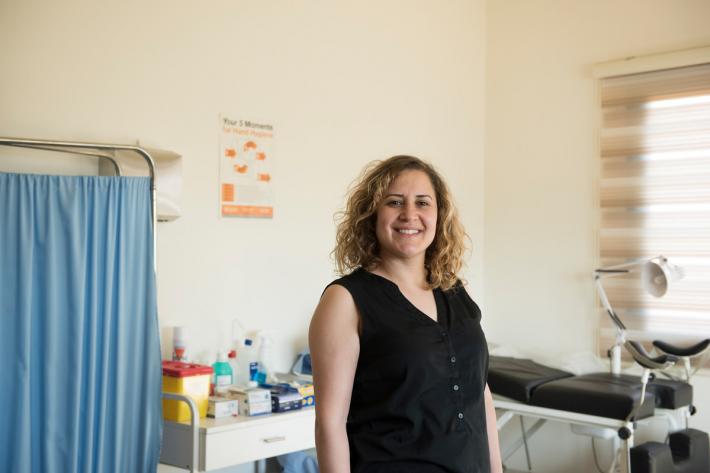
How badly has Lebanon been affected by the coronavirus (COVID-19)?
The Lebanese government has extended the general mobilization [a general closure from 7pm until 5am] until 12 April midnight, stressing on social separation and preventing gatherings in different public and private places. And the internal security forces and army are taking different procedures to ensure the commitment of the people to the general mobilization.
We are working from home and the clinic is closed in order to save the lives of the staff and beneficiaries. Around 80% of our beneficiaries are Syrian refugees, however it is recommended to not receive a large number of them at the clinic in order to prevent the infection and the spread of coronavirus in the camps which may lead us to a catastrophe.
In addition to that, the Order of Medicine is requesting doctors try to make consultations by telephone and WhatsApp instead of receiving a big number of beneficiaries (unless it is urgent), and to decrease the number of visits. On the other hand, the Ministry of Public Health has asked people to not go to the clinics and hospitals if it is not urgent.
What impact is it having when it comes to sexual and reproductive health and rights (SRHR)?
As per the experts, we will face shortages of family planning methods not only in Lebanon but in the world, especially condoms (as the biggest number of condoms are manufactured in China).
We will face unintended pregnancies – which will increase due to the quarantine – then unsafe abortion since abortion is not allowed in Lebanon. The problem here is that most of the hospitals and clinics are focusing on coronavirus treatment and the treatment of incomplete abortion may not be a priority.
What services have been the worst hit so far?
Most of the services except coronavirus treatment, vaccines, prevention services. However, after the extension of the general mobilization and in order to provide the services to the most in need population, we have decided to open the clinic starting next week.
For this purpose, we are developing a plan for the work during the next weeks, taking into consideration the protocols and procedures taken in Lebanon. This will include an isolation room before the consultation and an assessment of the patient’s status and any symptoms that may relate to the coronavirus. In addition to all the precaution procedures including separation, our clinic was sterilized by a specialized company.
Are frontline staff still able to go into the community?
All the field visits and outreach have stopped, especially to the [refugee] camps, except the emergency groups.
What are you doing to keep providing services to people in Lebanon?
We are developing a contingency plan to keep providing services during the upcoming period.
What message do you have for people/your staff in Lebanon when it comes to SRHR and coronavirus?
My message to all people and staff is to stay safe and commit to the quarantine, and to government and Ministry of Public Health’s recommendations.
As for SRHR, follow all the prevention procedures with regards with STIs. To use family planning (FP) methods to prevent unintended pregnancies and unsafe abortion. It is recommended to use natural FP methods and long-acting method (especially IUD).
Finally, seek services when needed, whatever is the way of service provision – in clinics, over the phone phones and through WhatsApp.